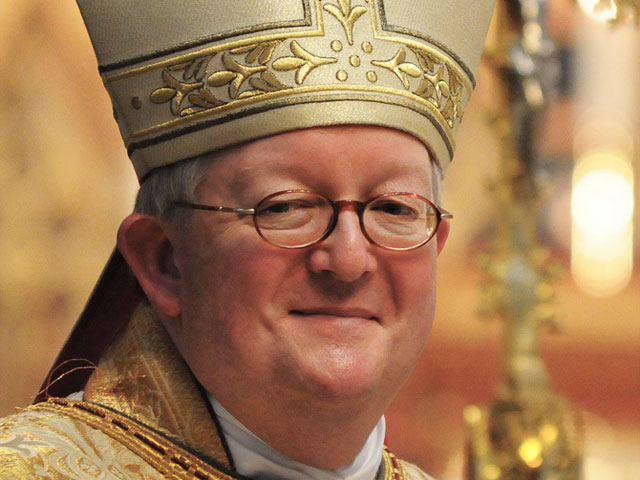How far should the press go to acculturate their overseas news stories — to make them palatable to an American audience while also being true to the underlying facts? NPR Morning Edition reporter Lauren Frayer had a great story last week that “gets religion”, but also brought this issue to mind.
Her report broadcast on Pakistan’s Aamir Liaquat was an example of solid reporting. Her story entitled “Pakistani Televangelist Is Back On Air, Raising Fears” meets the Orwell test for journalism as it is free from cant, has a moral compass, is well researched and well crafted. But were the correct nouns used?
Here is the lede:
Pakistan’s most famous, and infamous, TV evangelist has been rehired by a top station. In 2008, Aamir Liaquat made on-air threats against a religious minority, the Ahmadis. Those comments were followed by widespread violence against the group. Liaquat’s return to the airwaves has rekindled the controversy.
As Pakistan’s media has expanded in recent years, there’s been a rise in Islamic preachers with popular TV call-in talk shows. And they’ve had their share of scandal. One famous TV host fled the country after embezzlement allegations. Others are accused of spewing hate speech
That’s the case for Pakistan’s most popular televangelist, Aamir Liaquat, who’s just been rehired by the country’s top TV channel despite accusations that he provoked deadly attacks in 2008.
I have some small knowledge of the political and religious culture of Pakistan and can say she knows what she is talking about. I encourage you to listen to the broadcast. To often Western reporters are parachuted into overseas hotspots and report on issues they know nothing about — either mangling the facts or mouthing a script written by others. My colleague at GetReligion M.Z. Heminway reported on a particularly egregious howler along these lines committed by the New York Times.
I applaud NPR for bringing this story to an American audience. Given the growing U.S. involvement in the Muslim word, it behooves the American press to cover these stories and not confine them to the ghetto of specialist publications.
In writing about the Muslim world, however, I wonder how appropriate it is to use Christian terminology. Terms such as “fundamentalist Muslim” are often dropped into stories to give Western readers some context or equivalence. In the headline of this story, and in the opening paragraphs the term evangelist and televangelist are used to describe Liaquat. Is that right?
Using the Associated Press style book as a guide, using this terminology is not wrong — but it is not quite right either. It states:
evangelist
Capitalize only in reference to the men credited with writing the Gospels. The four Evangelists were Matthew, Mark, Luke and John. In lowercase, it means a preacher who makes a profession of seeking conversions.
Conversions to what? To proselytize is the verb that means to attempt to convert someone to another faith or point of view, while a Muslim evangelist traditionally has been someone who seeks to convert Muslims to the Christian faith. Turning to Wikipedia provides little clarity as it defines an evangelist as one who practices Christian evangelism, while the Merriam-Webster‘s dictionary further refines evangelist as a:
Protestant minister or layman who preaches at special services [or] an enthusiastic advocate <an evangelist for physical fitness>
On one level it may well be appropriate to use terms familiar to readers to illustrate a story. That is after all the purpose of an analogy. But is this appropriate when language is available to describe the same fact set in the terms of the culture being described?
A Muslim preacher who seeks to evangelize is called a sheikh or imam. Da‘wah, meaning the issuing of a summons, call or invitation, is the duty of every Muslim to invite people to their faith or to recall lapsed or nominal Muslims to a deeper faith. A Muslim who practices da‘wah, either as a preacher, religious worker or someone engaged in a faith-building community activity is called a da‘i, plural du‘at.
To a Muslim audience, Aamir Liaquat is a da‘i — someone who seeks to renew the Muslim faith, proselytize non-Muslims, and combat false teaching. Yes, he is an enthusiastic advocate for Islam, but should Christian terms be used to describe this activity when then are Muslim terms to describe such actions?
At the same time there is a danger in taking this too far.
A Saturday Night Live skit that aired on 10 November 1990 and can be viewed here made fun of the mock Spanish some television reporters used on air. Entitled “NBC News Employees”, the skit starred Latino actor Jimmy Smits and the shows regular cast. The scene opens with a reporter speaking on air from Nicaragua, who says the word Nicaragua in a hyper-Spanish phonology. The skit progresses with the Anglo characters pronouncing Spanish place names (Los Angeles, San Diego, Honduras), foods (enchilada, burrito), and even sports teams (Denver Broncos) in a ridiculous Spanish accent.
Jimmy Smits’ character, Antonio Mendoza, is introduced to the Anglo reporters and says his name with an American English accent. The other actors respond by saying his name with an excessive accent and Smit’s character becomes more and more uncomfortable as the skit progresses. He finally states:
If you don’t mind my saying, sometimes when you take Spanish words and kind of over pronounce them, well its kind of annoying.
So, GetReligion readers, is it kind of annoying to use Muslim terms for Muslim religious leaders in news stories? Is it too politically correct, or effete — perhaps pretentious? Unnecessary? Ridiculous? A tele-sheikh? Or is it demeaning to the non-Western world to subsume all things into an American milieu? What say you?











